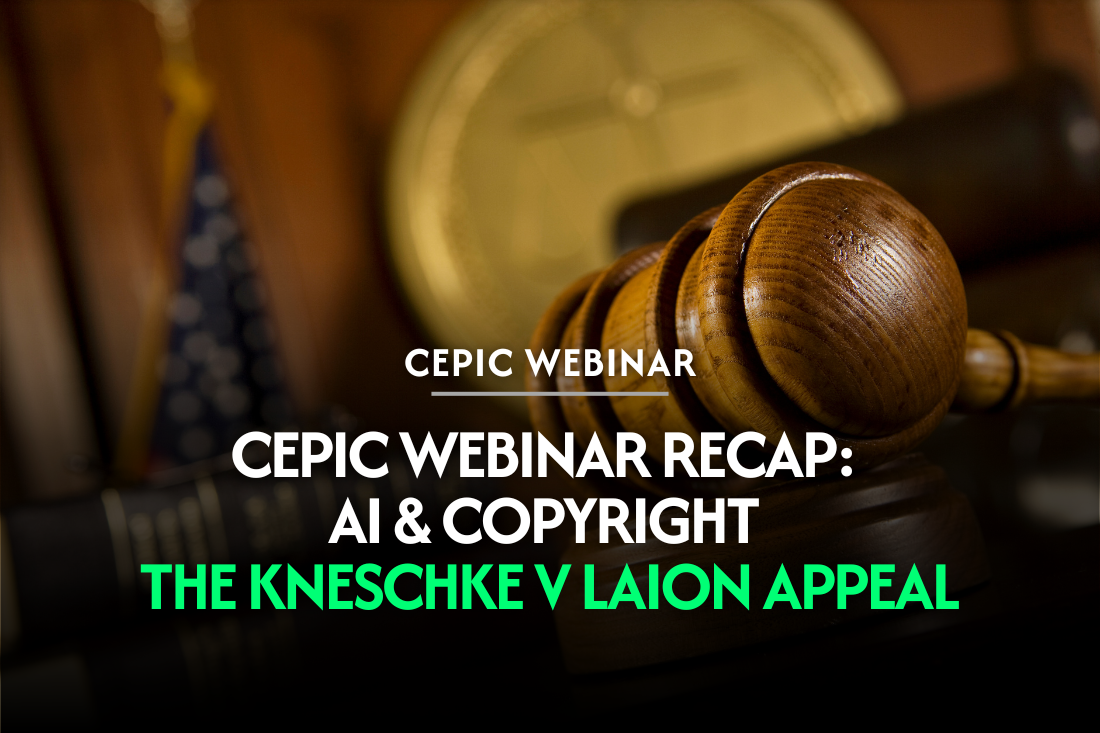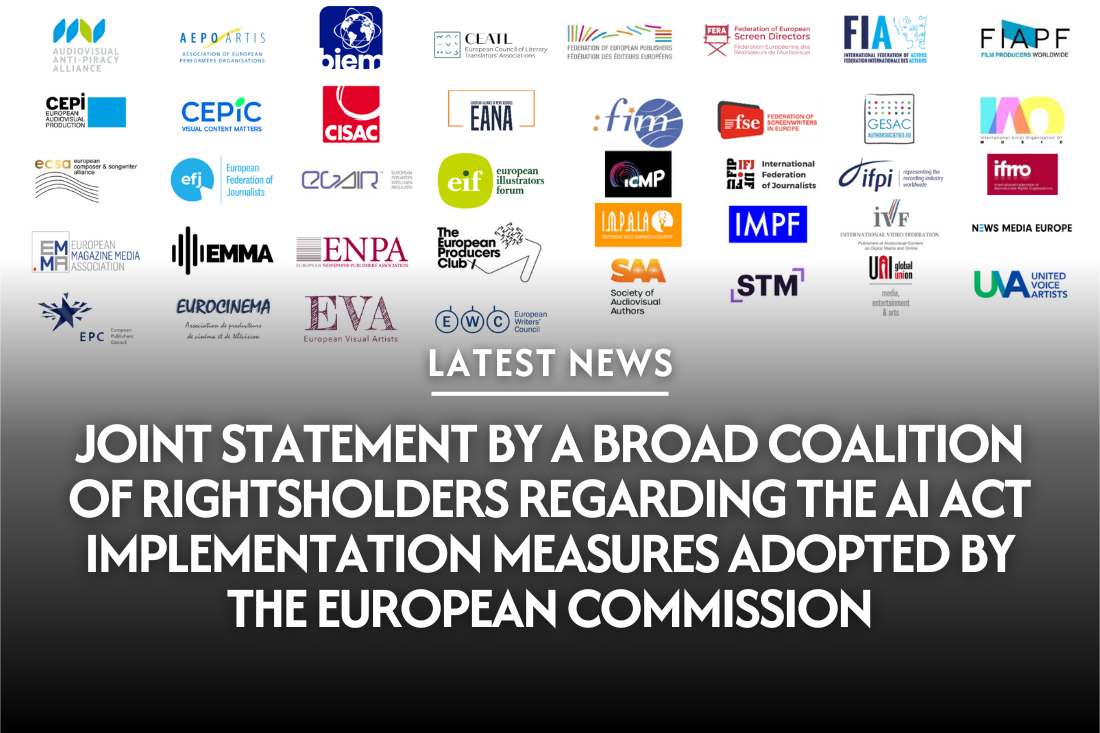Copyright
Copyright protects images both for the benefit of creators and society in general. We defend copyright with our input into EU directives, including the InfoSoc Directive (2001); the Orphan Works Directive, the Directive on Collective Management of Rights and the Directive on Copyright in the Digital Single Market (2019);.
This section examines all rights related to copyright.



Copyright
CEPIC Webinar Recap: AI and Copyright The Kneschke v LAION Appeal
CEPIC recently hosted a legal webinar with photographer Robert Kneschke and his legal representative Sebastian Deubelli, bringing together 40 participants from around the world to discuss the ongoing Kneschke v LAION appeal. Held under the Chatham House Rule, the session enabled open, in-depth discussion on the global implications of this landmark AI and copyright case, with CEPIC reaffirming its support for Robert Kneschke’s efforts to achieve legal clarity for creators.

Copyright
CEPIC on Ensuring Fairness and Legal Consistency in AI and Copyright Policy
CEPIC) has published its recommendations on the Draft Report on Copyright and Generative Artificial Intelligence – Opportunities and Challenges, calling for a fair, transparent, and legally consistent framework that protects Europe’s creative industries.

Copyright
Joint statement by a broad coalition of rightsholders regarding the AI Act implementation measures adopted by the European Commission
A broad coalition of rightsholders from the cultural and creative sectors in the EU has expressed dissatisfaction with the European Commission's implementation measures of the AI Act, particularly the GPAI Code of Practice and Guidelines. They argue that the measures fail to address key concerns about the protection of intellectual property rights and do not fulfil the promises of the AI Act, which was intended to safeguard European copyright holders in the age of generative AI.

Copyright
Combating Online Misinformation: Launch of "Provenance for Trust"
Provenance for Trust," a new initiative from TrustMyContent, UncovAI, and the Journalism Trust Initiative, aims to restore trust in media by ensuring content authenticity and traceability. The program addresses key issues like AI transparency and copyright protection, providing solutions to combat misinformation.

Copyright
Genshagen Theses published
Experts and cultural figures from Poland, France and Germany have presented proposals for a human-centred approach to generative AI as part of the Polish Presidency of the Council of the European Union.

Copyright
CEPIC Board meeting in Paris followed by panel at the Parlement de la Photographie
This week, members of the CEPIC Board gathered in Paris to reflect on the success of CEPIC 2025 and begin planning for CEPIC 2026. The following day, our Executive Director, Sylvie Fodor, represented CEPIC at the Parlement de la Photographie 2025, where she moderated the session “Photography and the Challenge of AI”.

Copyright
Joint statement by a coalition of authors, performers and other rightsholders active across the EU’s cultural and creative sectors regarding the third draft of the EU AI Act’s GPAI Code of Practice
The third draft of the GPAI Code of Practice undermines the objectives of the AI Act, contravenes EU law and ignores the intention of the EU legislator – we cannot support it.

Copyright
News Media Europe: Statement of concern regarding draft AI code of practice
European news publishers are deeply concerned about the third draft code of practice published last week by the European Commission. The draft includes a chapter about how AI providers must comply with EU copyright law which has unfortunately gone from bad to worse: it contains serious errors relating to the interpretation of AI and copyright law.
